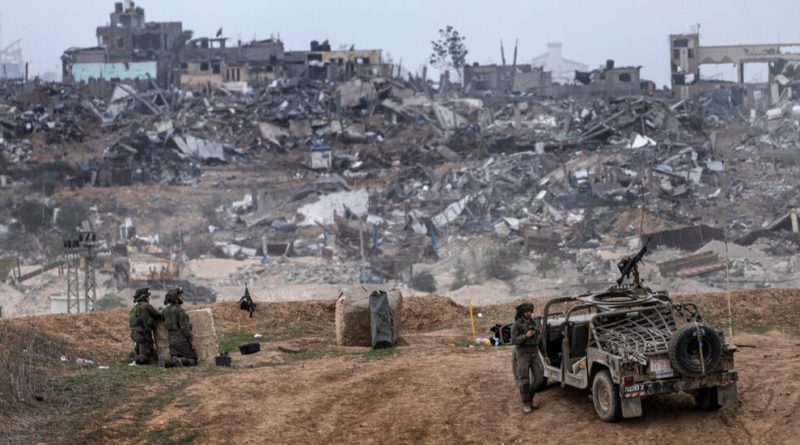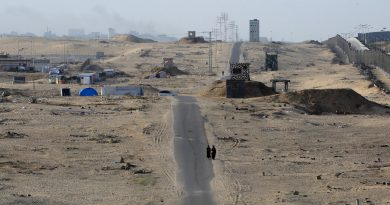Israel-Hamas War: U.N. Security Council Resolution Is Criticized as Insufficient

United Nations and other aid workers warned on Saturday that a new U.N. Security Council resolution calling for stepped-up aid for Gaza’s embattled civilians would fail to stop the spiraling humanitarian crisis because it did not demand a full halt to the fighting.
The resolution called on the U.N. Secretary General to appoint a special coordinator for aid to Gaza and establish a mechanism to speed up aid delivery in consultation with all relevant parties.
But without a cease-fire to accompany the stepped-up assistance, aid officials said they cannot address the insufficient food and fuel entering the territory, the collapse of Gaza’s commercial sector, frequent communications disruptions, or the inability of relief workers to reach many areas because of intensive Israeli airstrikes and ground operations.
“Right now, we cannot deploy humanitarian aid. It’s impossible,” said Guillemette Thomas, the medical coordinator for Doctors Without Borders in Jerusalem. “People need to be able to get food and water without the fear of being bombed or killed or shot at any moment. We need to be able to move within the strip to access people,” she added.
“The only thing that would be helpful is a cease-fire,” she added.
It was not clear whether the resolution would push Israel, which is not on the Security Council and so did not have a vote, to modify its approach to the war. While such resolutions are considered legally binding, they are hard to enforce and countries often ignore them.
The resolution referenced a measure passed last month calling for “humanitarian pauses” and called for the “immediate and unconditional release of all hostages,” a demand that Hamas, which still holds about 120 Israelis, was unlikely to heed, hoping instead to exchange them for Palestinian prisoners held by Israel.
Israeli leaders have vowed to keep fighting until Hamas is destroyed and insist on checking all goods bound for Gaza to prevent the entry of weapons and other supplies that could benefit Hamas’s military effort.
After 11 weeks of war between Israel and Hamas in Gaza, international alarm has risen over the plight of the territory’s more than 2 million people, who are increasingly cut off from the outside world, displaced, cold and hungry.
This week, the Integrated Food Security Phase Classification, an international partnership of aid organizations, classified Gaza’s entire population as in crisis or worse in terms of access to food.
Human Rights Watch this week accused the Israeli government of “using starvation of civilians as a method of warfare,” which it called “a war crime.”
Juliette Touma, the director of communications for U.N.R.W.A., the largest U.N. agency in Gaza, said it may be too soon to know the full impact of the resolution.
“It is welcome, but only time will tell what real difference this resolution is going to make, and it needs to increase the humanitarian assistance that has been going into Gaza.”
Ms. Touma said that the aid entering Gaza during the war was woefully insufficient, less than 10 percent of what Gaza received before the war. And the fighting made distributing even limited aid impossible in many parts of Gaza.
“The ongoing military operation and the bombardment are definitely a challenge because you can’t deliver humanitarian assistance under a sky full of airstrikes, and there is very little assistance coming in,” Ms. Touma said.
Isabel Kershner contributed reporting.
Source – NY Times




